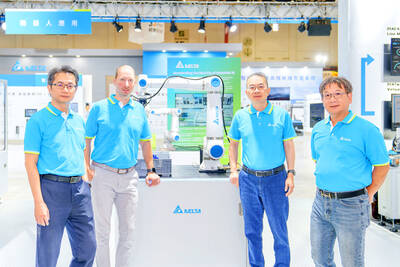US sports gear powerhouse Nike Inc has teamed up with Apple Computer Inc to make a running shoe that can talk to iPod digital music players, the companies announced on Tuesday.
Apple chief Steve Jobs and the head of Oregon-based Nike, Mark Parker, unveiled a Nike+ Air Zoom Moire shoe imbedded with technology that transmits time, distance, calories burned and pace data to runners' iPods.
The shoe is designed to work with a Nike+iPod Sport Kit, a wireless system that includes an in-shoe sensor and a receiver that attaches to an iPod.
The performance data is displayed on the iPod screen and relayed audibly in real time via iPod headsets. It can also be downloaded to home computers so runners can track their training progress.
Runners can program iPods with motivating songs to kick in during steep climbs or when a burst of speed is craved near a finish line, according to a video ad posted at the nikeplus.com Web site created in tribute to the union.
Nike announced plans to make many of its leading sports shoe models "Nike+ ready."
"If you can incorporate time, distance and calories burned together and make it function for both the fitness runner and the high level athlete, it will take working out to a whole other level," said Tour de France legend Lance Armstrong, who took part in the New York City unveiling along with marathon world record holder Paula Radcliffe.
The Nike+ shoe was the first product in a planned line of sports products designed to work in harmony with iPods, the firms said.
A Nike Sport Music section was added to Apple's online iTunes Music Store, according to Jobs.
The Nike+iPod Sport Kit was expected to be on sale at Apple and Nike Web sites and at retail outlets within 60 days for US$29.

SETBACK: Apple’s India iPhone push has been disrupted after Foxconn recalled hundreds of Chinese engineers, amid Beijing’s attempts to curb tech transfers Apple Inc assembly partner Hon Hai Precision Industry Co (鴻海精密), also known internationally as Foxconn Technology Group (富士康科技集團), has recalled about 300 Chinese engineers from a factory in India, the latest setback for the iPhone maker’s push to rapidly expand in the country. The extraction of Chinese workers from the factory of Yuzhan Technology (India) Private Ltd, a Hon Hai component unit, in southern Tamil Nadu state, is the second such move in a few months. The company has started flying in Taiwanese engineers to replace staff leaving, people familiar with the matter said, asking not to be named, as the

The prices of gasoline and diesel at domestic fuel stations are to rise NT$0.1 and NT$0.4 per liter this week respectively, after international crude oil prices rose last week, CPC Corp, Taiwan (台灣中油) and Formosa Petrochemical Corp (台塑石化) announced yesterday. Effective today, gasoline prices at CPC and Formosa stations are to rise to NT$27.3, NT$28.8 and NT$30.8 per liter for 92, 95 and 98-octane unleaded gasoline respectively, the companies said in separate statements. The price of premium diesel is to rise to NT$26.2 per liter at CPC stations and NT$26 at Formosa pumps, they said. The announcements came after international crude oil prices

STABLE DEMAND: Delta supplies US clients in the aerospace, defense and machinery segments, and expects second-half sales to be similar to the first half Delta Electronics Inc (台達電) expects its US automation business to remain steady in the second half, with no signs of weakening client demand. With demand from US clients remaining solid, its performance in the second half is expected to be similar to that of the first half, Andy Liu (劉佳容), general manager of the company’s industrial automation business group, said on the sidelines of the Taiwan Automation Intelligence and Robot Show in Taipei on Wednesday. The company earlier reported that revenue from its automation business grew 7 percent year-on-year to NT$27.22 billion (US$889.98 million) in the first half, accounting for 11 percent

A German company is putting used electric vehicle batteries to new use by stacking them into fridge-size units that homes and businesses can use to store their excess solar and wind energy. This week, the company Voltfang — which means “catching volts” — opened its first industrial site in Aachen, Germany, near the Belgian and Dutch borders. With about 100 staff, Voltfang says it is the biggest facility of its kind in Europe in the budding sector of refurbishing lithium-ion batteries. Its CEO David Oudsandji hopes it would help Europe’s biggest economy ween itself off fossil fuels and increasingly rely on climate-friendly renewables. While